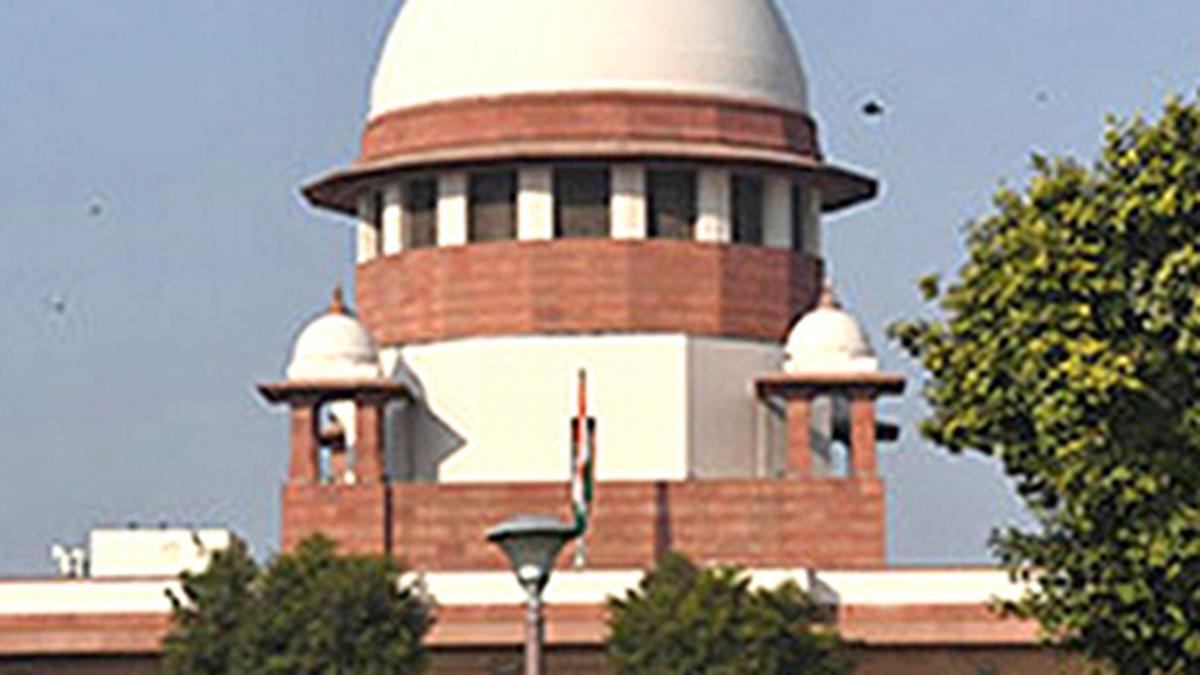Gujarat encounter killings: Supreme Court to hear State Govt’s …

The Supreme Court on April 10 said it will hear in detail the Gujarat Government's objections to sharing a report filed by an apex court-appointed committee led by its former judge, Justice H.S. Bedi, who investigated several police encounters which happened in the State during the chief ministerial era of Prime Minister Narendra Modi. A Bench led by Justice Sanjay Kishan Kaul listed the case on July 1 after Solicitor General Tushar Mehta, for Gujarat, and senior advocate Mukul Rohatgi, appearing for three Gujarat Police officers allegedly involved in the encounters, objected to the circulation of the copies of the Justice Bedi report to petitioners led by lyricist Javed Akhtar and others representing the late journalist BG Varghese.
The petition was filed way back in 2007. On Monday, Mr. Mehta said this was a "selective PIL" filed by people who were "strangers" to Gujarat.
He also questioned the need to implement the report. The report, submitted confidentially to the apex court in 2018, had investigated 17 police encounters which occurred between 2002 and 2007 in Gujarat. The Justice Bedi committee was constituted by the apex court in 2012.
The committee had reportedly recommended the prosecution of police officers in three out of the 17 cases probed by it. In its final report, Justice Bedi had reportedly said three persons -- Sameer Khan, Kasam Jafar and Haji Haji Ismail -- were prime facie killed in "fake" encounters. In January 2019, the apex court refused the State Government's request[1] to keep the Bedi report under wraps.
The court had ordered copies to be shared with the petitioner side and Gujarat. However, on Monday, advocate Prashant Bhushan and senior advocate Nitya Ramakrishnan, said nothing like that had happened so far. "We have received letters from the officers that these were investigations under the Criminal Procedure Code and nothing should be shared with anyone other than the potential accused, the court and the public prosecutor...
The petitioners are people from other States who have never come to Gujarat. They have identified a particular period during which they allege encounters took place in Gujarat... The State where they were staying also had encounters, but they were not bothered about...
There is a serious doubt about their locus standi and motive," Mr. Mehta countered. Justice Kaul pointed out that the committee was appointed by none other than the Supreme Court on the basis of the petitions.
"The enquiry was held by a former Supreme Court judge... What is your stand? Is it your stand that the report should not be implemented?" Justice Kaul asked Gujarat.
"We have to say something on the report also," Mr. Mehta replied. "You are opposing the report...
Therefore we have to hear you on whether the report has to be implemented or not," Justice Kaul surmised. But Mr. Mehta said the first point of discussion would be whether or not the report should be shared with "strangers".
Mr. Rohatgi intervened to argue that the petitioners' role was over. "They cannot continue to be my prosecutors now... The evidence and statements of witnesses contained in the report cannot be shared with the petitioners.
It is now between the court, the State and me," he submitted. Mr. Bhushan referred to a Supreme Court judgment in PUCL versus Maharashtra which had issued guidelines in cases of "fake" police encounters.
"In such cases, the court had directed FIRs to be registered immediately and the cases to be investigated by an independent agency. Here, the Supreme Court had gone one step forward by appointing a committee under a former apex court judge to investigate the encounters. Justice Bedi's report fortifies our petition," Mr.
Bhushan argued. "The report by Justice Bedi was obtained under the direction of this court... But they have reservations about sharing the report, that has to be heard," Justice Kaul told Mr.
Bhushan. "If law does not take its course when policemen run amok, this is what will happen," Ms. Ramakrishnan submitted.
The court listed the case on July 1 for addressing the objections raised by Gujarat and the police officers represented by Mr. Rohatgi about circulating the report copies to the petitioners. In his petition, Mr.
Verghese had alleged that the encounter killings spanned a range of persons that included migrant workmen to suspected terrorists, all aged between 22 and 37. "There is a need to investigate this pattern and there must be a system in place to ensure that armed personnel do not easily do away with lives of citizens," he had submitted.
The court had earlier made it clear that the cases investigated by the Justice Bedi committee did not include those already probed by the CBI or SIT as per Supreme Court or High Court orders.
This would mean the Sohrabuddin-Kauser Bi,Tulsiram Prajapati and Ishrat Jahan cases were outside its purview.
COMMents
SHARE
References
- ^ the apex court refused the State Government's request (www.thehindu.com)
- ^ Email (www.thehindu.com)